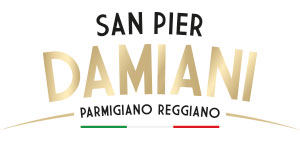Our History
The founder of the family, Pietro, started the business in 1846; today Elvezio Delsante, who has in the meantime become CEO of the San Pier Damiani Dairy, leads the family business, alongside his son Saverio. Their cousins, Angela and Benvenuto, also make a vital contribution.
The local area
The area of origin of Parmigiano Reggiano is limited to and exclusively covers the five Italian provinces of Parma, Reggio Emilia, Modena, Bologna (bordered by the river Reno) and Mantua (in its area on the right of the river Po). The Parmigiano Reggiano protected by the “PDO” (Protected Designation of Origin), guaranteed by the European Union may only be produced in this defined area.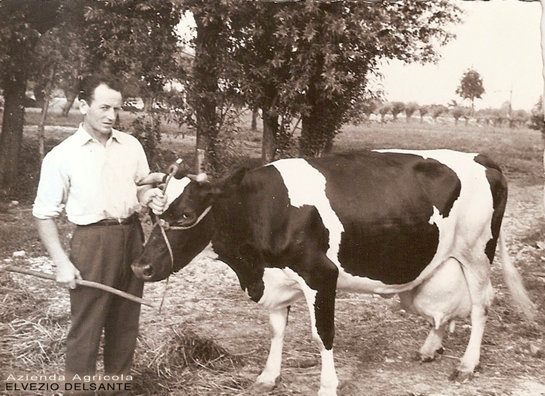
1846
Pietro Delsante started business as a mixed economy fund lessee in various locations in the hills around Parma. From father to son the experience and deep understanding of the land led the family towards an increasingly precise specialist production. Milk production for making Parmigiano Reggiano became ever more important as a business activity.
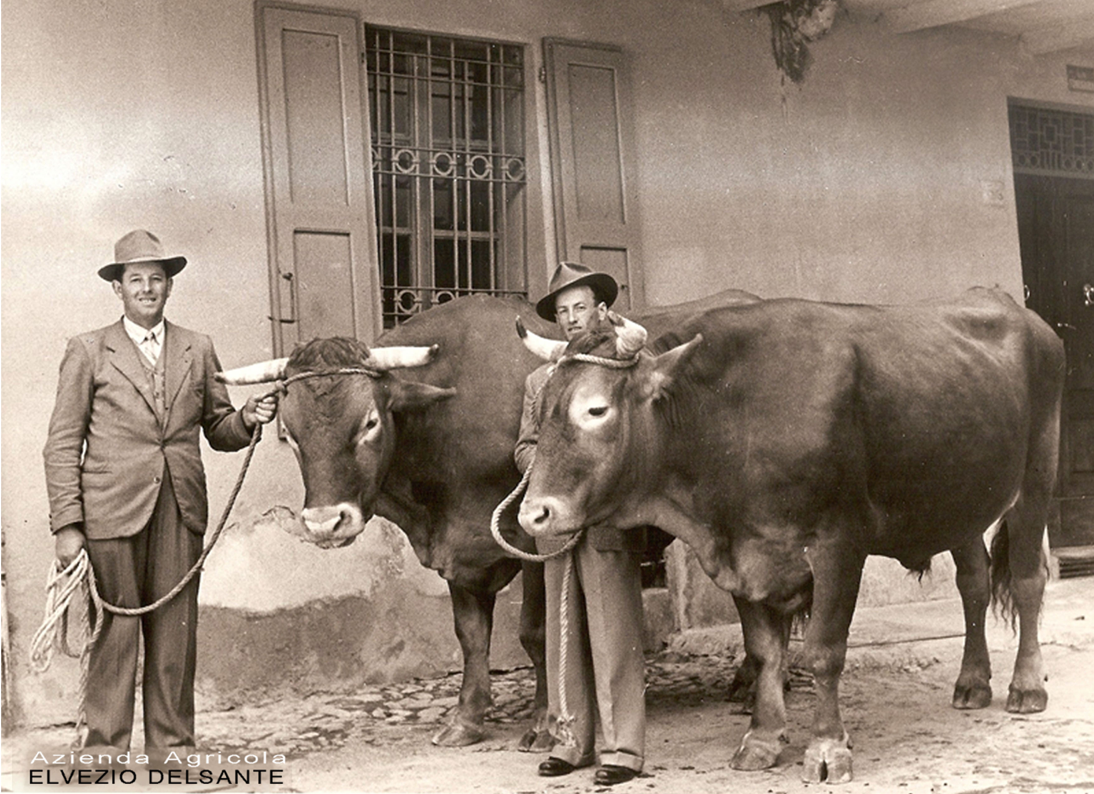
ANNI 60
The Delsante brothers rented the three farms next to Sant'Anna, San Guglielmo and Santa Felicita in order to independently manage their business. In 1967 they became partners in the San Pier Damiani dairy farmers’ cooperative in San Prospero Parmense. They continued with milk production for making Parmigiano Reggiano, alongside the production of wheat and tomatoes for the canning industry.
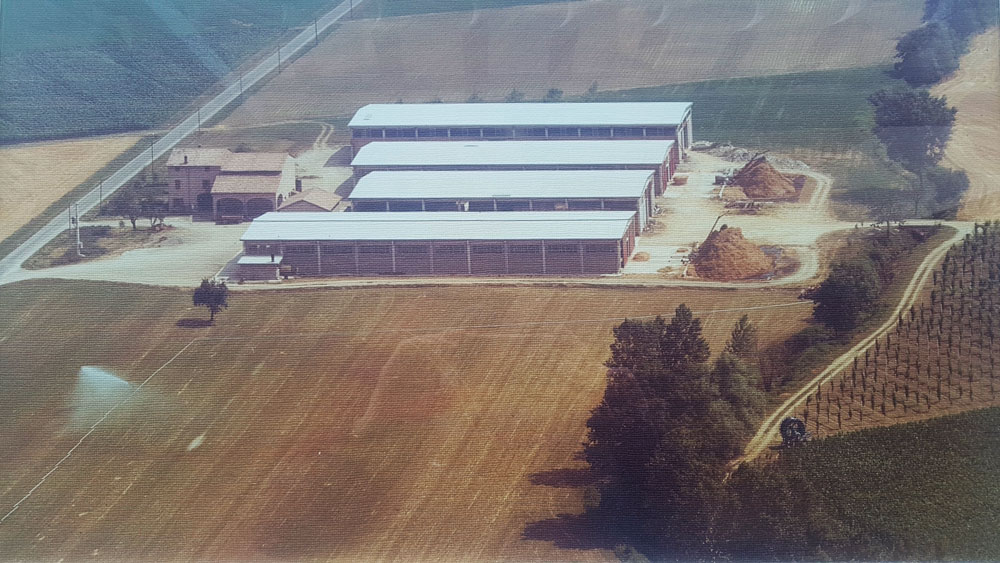
ANNI 80
The first of the farms was bought and the barns were built that held 180 milk cows. In the following years the barns were extended and flanked by other agricultural buildings, used as storage for equipment and as haylofts. The brothers separated: Vincenzo and Egidio carried on together and Elvezio, Egidio’s son, came in as a partner. The business gave up tomato growing in order to specialise in milk production, increasing the quantity produced annually.
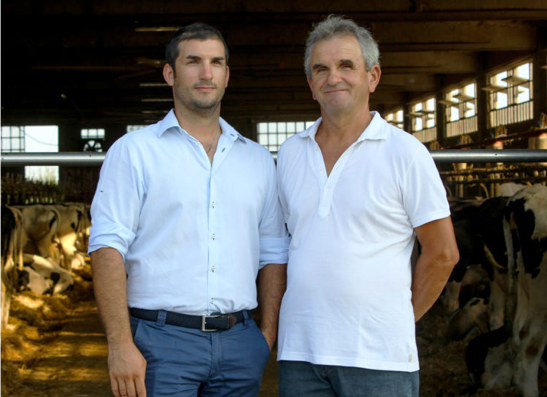
ANNI 2000
The farm increased its production capacity reaching over 300 heads of cattle. Other neighbouring farms were bought reaching around 135 hectares of cultivated land. The San Pier Damiani Dairy began its guided tours. It opened its doors to visitors from all over the world who want to know about the stages of cheese production. In parallel it opened its own sale point.
THE DAIRY
The farm
With careful genetic selection it is possible to have animals that are particularly efficient in processing this cellulose into milk.
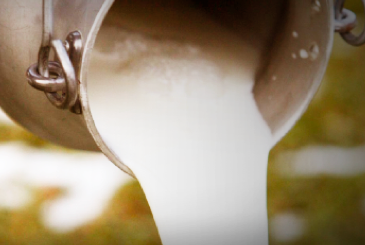
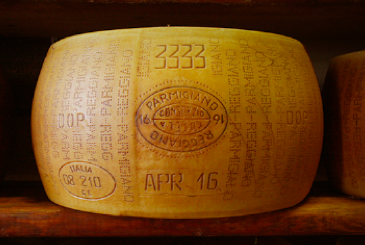
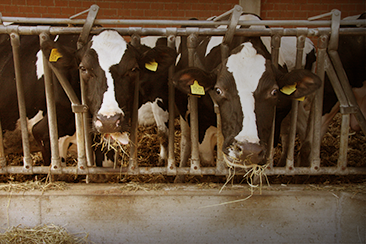
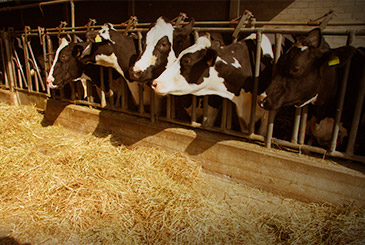
THE DAIRY
A2A2 Milk
Milk containing only A2A2 Beta Casein.

The studies carried out on this type of milk have identified the different degradation processes of this protein compared to the A1A1 variant that make A2A2 milk more pleasing to the consumer.
The project began in 2016 by carrying out a genetic mapping of the cows in the stable thanks to the technical support of the ARA Piedmont laboratories. On the basis of this mapping it was possible to identify some animals already genetically A2A2 and others that crossed with A2A2 bulls could give offspring. It will take another 4 years to have a stable populated entirely by A2A2 animals, while in the first months of 2020 the production of 100% A2A2 Parmigiano Reggiano wheels began, these wheels have the Certiquality quality certificate, which guarantees the consumer that the cheese is made exclusively with A2A2 milk deriving from A2A2 cows and that throughout the processing the characteristics are preserved.
THE DAIRY
The land
The Delsante farm cultivates 135 hectares of land including permanent meadowland, alfalfa, wheat, barley and maize.
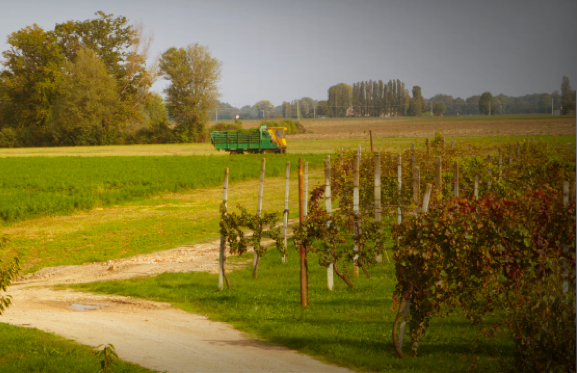
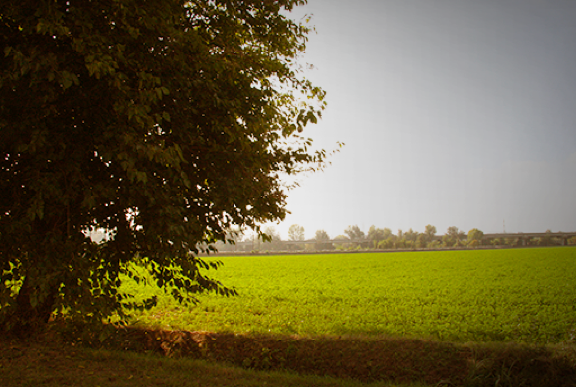
The production rules of Parmigiano Reggiano do not allow the preservation of fodder through silage techniques, which means fermentation. The preservation is therefore carried out only through the natural drying out of the essential vegetable matter, which becomes hay. This type of fodder preservation and cattle feeding is the closest to the traditional one.
